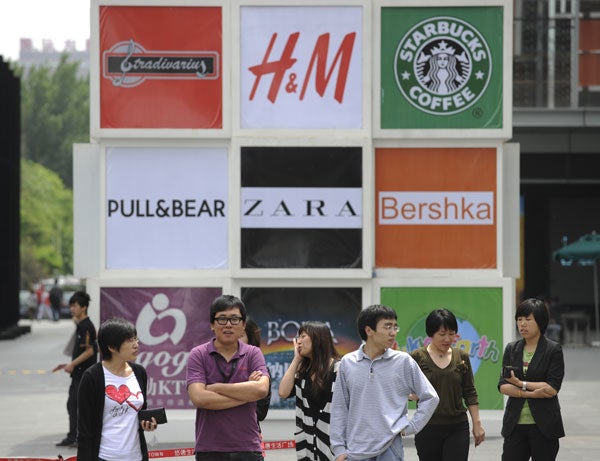The Fat Years, By Chan Koonchung, trans. Michael Duke

Your support helps us to tell the story
From reproductive rights to climate change to Big Tech, The Independent is on the ground when the story is developing. Whether it's investigating the financials of Elon Musk's pro-Trump PAC or producing our latest documentary, 'The A Word', which shines a light on the American women fighting for reproductive rights, we know how important it is to parse out the facts from the messaging.
At such a critical moment in US history, we need reporters on the ground. Your donation allows us to keep sending journalists to speak to both sides of the story.
The Independent is trusted by Americans across the entire political spectrum. And unlike many other quality news outlets, we choose not to lock Americans out of our reporting and analysis with paywalls. We believe quality journalism should be available to everyone, paid for by those who can afford it.
Your support makes all the difference.This is the first novel by jack-of-all-trades Chan Koonchung. Born in Hong Kong, and resident in Beijing, he has been a screenwriter, film producer, journalist magazine editor, environmental activist and political campaigner. Already banned in Chan's homeland, The Fat Years is propelled by a smart dystopian conceit. In 2011, a month of Chinese history goes missing: 28 days in February and March separating a global economic meltdown from the beginning of "China's Golden Age of Ascendancy". Weirdly, the majority of citizens are too satisfied with their lives to notice the lacuna. A few people – an unhappy few as it turns out – are immune to the communal well-being, and wonder where the time has gone.
The protagonist, a Taiwanese exile called Old Chen, is not one of the enlightened. A crime writer, he wanders Beijing in a fug of comfortable procrastination: he buys "great-tasting Lychee Black Dragon Latte" from Starbucks (now owned by Wantwant China); he attends literary parties where intellectuals extol the government; he watches old Communist propaganda movies with high-ranking party official He Dongsheng; and he fails to write a single word.
Two blasts from Chen's past change his life for good. The first is Fang Caodi, a returned Chinese exile who spots the recent time lapse. The second is old flame, Wei Xihong. She is dissatisfied with the antiseptic present, and even unhappy at the erasure of China's admittedly turbulent history. "No one talks about it, except me. Does that mean I am completely mad?"
The trio forms an uneasy alliance: Old Chen falls in love with Little Xi, but remains sceptical about her conspiracy theorising. Their quest to excavate the truth draws them towards an underground Christian movement. In the end, Chen must answer Little Xi's central question about modern China (posed by alluding to Chinese novelist Lu Xun): "Between a good hell and a fake paradise – which one would you choose?"
The Fat Years is pitched somewhere between the wild comedy of Yu Han's Brothers and the impassioned social realism of Ma Jian's Beijing Coma. Chan alludes to Candide and Brave New World. China is a land of mass delusion and continual short-term memory. Tiananmen Square is a location not a tragic event. People, places and time go missing. Radical protest has been bought off by the promise of a good life.
Chan's portrait is bracing, smart and entertaining, but whether The Fat Years is an entirely successful work of fiction is less certain. Its odd combination of autobiography, polemic, thriller and critique makes for a somewhat awkward read. It is possible this wonkiness is a knowing attempt to mirror the plot's ellipses. But in the lengthy Epilogue, Chan's enjoyably absurdist story is elbowed aside by a didactic finale: He Dongsheng delivers a series of sobering, but monotonous lectures on contemporary Chinese society.
It's as if Chan didn't trust the effectiveness of his satirical idea, and intervenes to ram his message home. This bare-faced examination may not be pretty, but it is courageous, especially when freedom of expression can land you in a Chinese prison. The Fat Years is to be applauded and admired, even if it doesn't quite earn a standing ovation.
Join our commenting forum
Join thought-provoking conversations, follow other Independent readers and see their replies
Comments